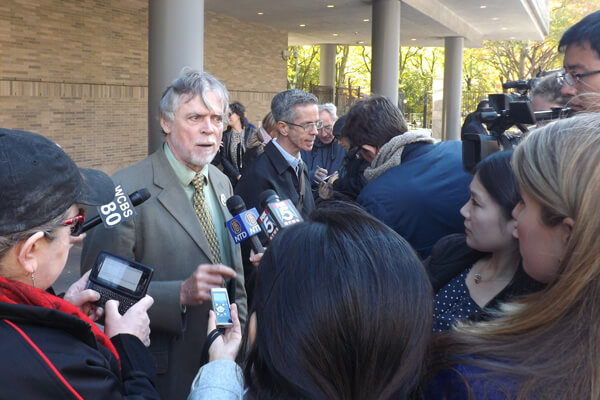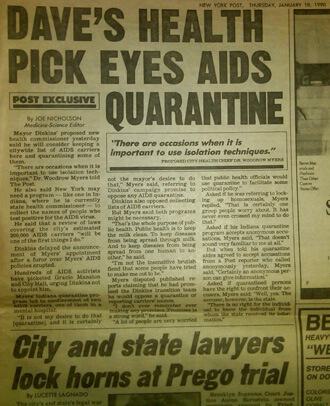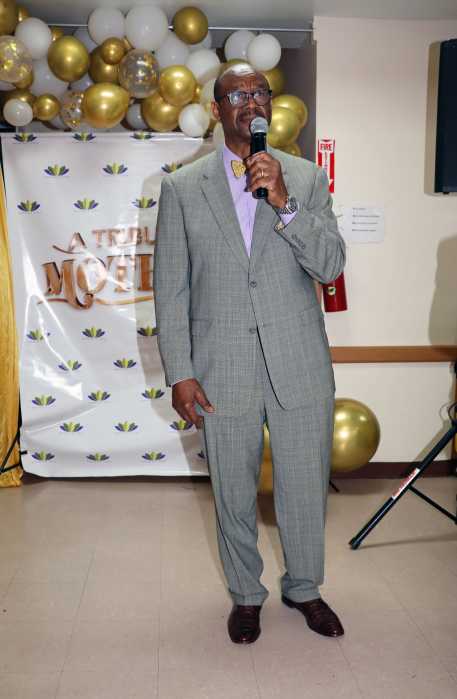As New York City and the state work to essentially end AIDS as an epidemic by 2020, the two key components of that goal have been to ensure that all those infected with the HIV virus are on treatment and compliant with their regimen — which should render them uninfectious to their partners — and that those who are negative and sexually active adhere to pre-exposure prophylaxis, or PrEP, which if used according to guidelines should eliminate the risk they could be infected.
Since the introduction of PrEP, the toughest question to quantify has been how widespread its uptake is among those negative New Yorkers most at risk, particularly gay and bisexual men — and especially in communities of color where new infection rates have remained stubbornly high.
MiDoctor Urgent Care is a year-old facility in Hell’s Kitchen that has pursued a strategy of creating the patient supports that allow it to serve as a community clinic. With a policy of never turning patients away, regardless of their ability to pay, it works to facilitate access to care for those who are poorly insured or not insured at all. With memberships packages ranging from $50 to $100 per month, MiDoctor offers between four and six no-fee visits a year plus discounts on medications, vaccines, and lab costs.
Most pertinent to the issue of PrEP intake, the clinic works with Gilead, the maker of Truvada, the only FDA-approved treatment for preventing infection, to allow its members to avoid insurance co-pays or the cost of the medication altogether if they are uninsured.
Dr. Vino Palli, an emergency medicine specialist at New York Presbyterian Lawrence Hospital who also has a master’s degree in public health, is a founder and the CEO of MiDoctor, and he spoke to Gay City News this week about that clinic’s experience in doing PrEP outreach among its many gay and bi patients.
According to Palli, the facility’s patients have been “very receptive” to the idea of PrEP — he estimates MiDoctor has enrolled roughly 100 on the treatment — but the level of sexual health knowledge varies widely among those first coming through the door.
“The community is unfortunately not well educated in public health,” Palli said.
The conversation often starts, he said, around a “deciding point” — a patient arriving in need of treatment for an STD or a urinary tract infection.
“We initiate a conversation about sex and give them a booklet on PrEP,” Palli explained. “They are going to come back for their results or a follow-up, and that’s when we pick up the conversation.”
Decades into the epidemic, he said, startling gaps in people staying on top of their sexual health continue. While working the ER at Lawrence Hospital in Bronxville recently, Palli came upon a bisexual man, last tested for HIV two years ago, who had been misdiagnosed with asthma and actually had Pneumocystis pneumonia. Other doctors there said it had been many years since anyone had presented at the ER with PCP unaware of their HIV status.
The number of patients who visit MiDoctor to access PEP, or post-exposure prophylaxis — in essence a morning-after pill regimen that must be started within 72 hours of a potential transmission — also demonstrates that a portion of the population has not yet come around to the idea of PrEP. The clinic sees British tourists, who cannot access PrEP at home and use PEP as an alternative when they worry about a risky encounter, but MiDoctor has locals coming in for it, as well.
MiDoctor builds on its efforts at educating its patients by hosting monthly evening programs where its members can meet with experts to learn more about sexual health.
Once a patient starts PrEP, MiDoctor requires quarterly check-ups — to make sure that liver and kidney functions indicate no toxicity from the medication but also to ensure compliance with the regular dosing. Only one patient presented with worrisome elevated liver enzymes and he was referred to a specialist to determine if something else was at the root of that.
Compliance can be trickier, with some patients thinking that if they are currently not having sex they can stop taking the Truvada and come back to it when the situation changes. But when sex happens at a spur of the moment, Palli emphasized, PrEP cannot be relied on to act in the same fashion that PEP does. It acts to prevent infection from happening in the first place, not by stopping an early infection in its tracks.
Palli said this sort of compliance problem results from misinformation or misunderstanding and can be corrected by spending the proper time counseling the patient.
Palli believes that the clinic’s staff expertise and its approach to patient care make it well-suited to do the public health education work that needs to get done. Born and raised in India, he did his residency in Chicago — at the University of Chicago, the University of Illinois’ campus in the city, and the Rush University Medical Center. MiDoctor has a staff of 15, with three doctors, all emergency room specialists, and three physician assistants. The provider team includes LGBTQ members, and is versed in other aspects of LGBTQ care, including serving the lesbian and transgender population.
MiDoctor, located at 715 Ninth Avenue, between 48th and 49th Streets, is open 365 days a year, weekdays 8 a.m.-10 p.m. and weekends 9-7.


















